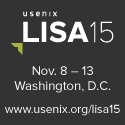"Ok, but... where do I start?"
That's the question we hear over and over again. There are literally hundreds of "best practices" in system administration. Which are the most important? Where do I start?The Ops Report Card is a list of 32 fundamental "best practices" or "capabilities" that high performance sysadmin teams do. Use it as a checklist to examine where your team needs improvement.
You'll find 32 "yes/no" questions to ask about your team. Each is followed by an essay explaining the issue, why it is important, and resources to help get you started.
Do assessments work?
There is no magic here. It is possible to find a high-performing team that skips some of these best practices. However more likely than not that they don't. It is possible to find low-performing teams that incorporate all these best practices. However it is more likely that they do not. Adopting any one "best practice" may not improve your team. The problems may be deeper. Communication, maturity, skill and ability to execute can derail any best practice.People constantly ask me how they can improve their sysadmin team. It takes only a brief discussion to find fundamental gaps that, when filled, will improve the team's productivity and the quality of service being provided.
These practices are fundamental. They are bedrock. Ignoring one creates a domino effect of other problems. These downstream problems multiply. If you are overworked maybe the solution isn't to work harder, but to fix the problem that is causing other problems.
Don't spend all your time mopping the floor if you haven't fixed the leak.
How do I use the OpsReportCard?
Answer the questions and count the number of yes's. That is your score. Most questions are self-explanatory with the exception of #2. Read the essay that follows each question to learn about the subject, why it is important, and resources to help you get started.
What should I tell my boss?
There is nothing more frustrating than the knowledge that a better way exists. That said, we find it best to have your boss do the assessment him or herself.
Do not become fanatical about this list. Do not implement a best practice just because it is on this list. Implement it if it will fix a real problem. Measure the effect and evaluate before moving on.
